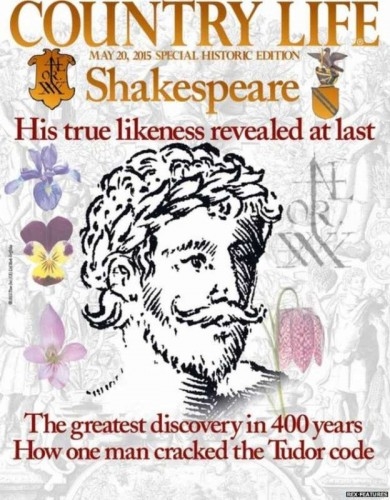 A 400-year-old botany book contains what could be the only known portrait of English poet and playwright William Shakespeare made in his lifetime, an academic expert said.
A 400-year-old botany book contains what could be the only known portrait of English poet and playwright William Shakespeare made in his lifetime, an academic expert said.
Leading British botanist and historian Mark Griffiths made the discovery when he was researching the biography of pioneering botanist John Gerard (1545-1612), author of “The Herball or Generall Historie of Plantes”, BBC reported.
“This is what Shakespeare looked like, drawn from life and in the prime of life,” he said.
The 1,484-page book, published in 1598, is described as the largest single-volume work on plants that has been published in English.
The title page is illustrated with an engraving by William Rogers depicting four figures, which were thought to have been imaginary.
However, Griffiths decoded decorative devices around the figures — such as heraldic motifs and emblematic flowers — to reveal their “true identities”.
They are, he says, the author Gerard, Rembert Dodoens, a renowned Flemish botanist, and Queen Elizabeth’s lord treasurer, Lord Burghley.
The fourth man holds a fritillary and an ear of sweetcorn — plants which Griffiths says point to Shakespeare’s poem “Venus and Adonis” and his play “Titus Andronicus”.
“Beneath the bearded fourth man was an ingenious cipher of the kind loved by the Elizabethan aristocracy which, decoded, confirmed his identity as William Shakespeare,” the botanist said.
It is not the first time such claims have been made about a Shakespeare portrait.
In 2009, a painting known as the “Cobbe” portrait was put on show by the Shakespeare Birthplace Trust in Stratford-upon-Avon, the playwright’s birthplace. The trust said it was convinced the artwork — thought to date back to 1610 — was an authentic portrait, but some critics said the picture was not of Shakespeare.